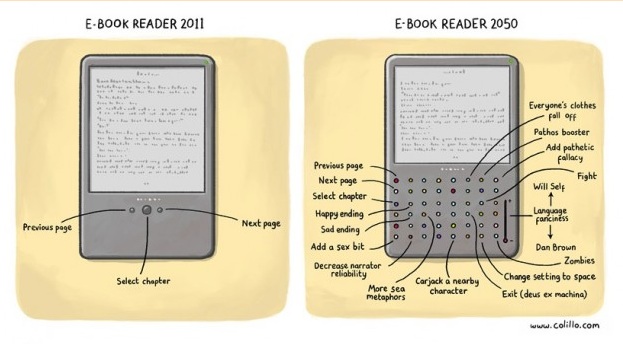Diziet Sma wrote:Aye.. but those printing costs keep a
lot of people employed. Especially when you look at all the subsidiary industries that contribute to feeding raw materials to the newspapers, and subsequently get them into the hands of the people. Replace all that with a single device, the sales of which benefit just one corporation which employs slave labour in 3rd-world countries to manufacture said device, (and don't even get me
started on Foxconn) and a whole lot of people are gonna be hurting, along with the larger economy.
The law of unintended consequences is a bitch.. and the global economy is going further down the toilet all the time.. don't be in too much of a hurry to help it along.

Yes, they do - but the print industry, and others, have seen this happen to them already. When I started working with print there was an intermediate stage between artwork (physical or digital) and printing plate: we'd send artwork to a filmsetter, who would put it through a giant DuPont raster image processor and output huge sheets of film. The film would then be used in another giant machine, via a photographic process, to make aluminium plates for offset litho printing. Then along came Adobe and disk-to-plate technology, and now all those filmsetters have all ceased to exist, and their DuPont RIPs are R.I.P., and the factories which made the film, and the chemicals to develop the film, are defunct, and the companies which distributed the film have disappeared or found other things to distribute. And speaking of film, look what happened to Kodak: people came along and invented an entire industry, and all its associated industries, into oblivion, within a few years. These things happen. They're happening at an accelerated rate, too. Industries in the information field are particularly vulnerable, but the ground under everyone's feet is shifting, now.
I'm in no hurry to help it along: as far as I'm concerned, the best way to read text is print-on-paper. But what I like and what's going to happen are very different things. In defence of e-texts, though - particularly for ephemera such as newspapers - the resource and energy usage is vastly lower. Think how monstrously wasteful it is to chop down a tree, mince it up, soak it in chemicals, squash it flat, bleach it, package it, ship it, print on it, cut it, repackage it, ship it again, just so that someone can read that there's Trouble in the Middle East and that Something Causes/Cures Cancer, before they dump it the next day. Even if it's recycled, there's still more bleaching, mincing, squashing, shipping, printing and packaging to be done before we can use it again to find out that there's Trouble in the Middle East and ...
. Maybe I'm just biased, but I find this very hard to believe. But, if it's true, I have to agree with CML - it's about as sadly scary as it gets.







